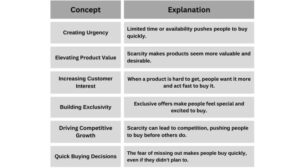
What is link popularity in ? It’s a crucial topic for anyone looking to enhance their website’s visibility and ranking on search engines. Link popularity refers to the number and quality of links directed toward a website, serving as a vote of confidence from other sites. This concept plays a vital role in determining how search engines perceive the authority and relevance of a site, ultimately influencing its ranking in search results.
Factors that contribute to link popularity include the credibility of the linking site, the relevance of the content, and the overall online presence. Understanding these aspects empowers website owners to create strategies that not only attract links but also foster meaningful connections within their industry.
Understanding Link Popularity
Link popularity is a crucial aspect of search engine optimization () that refers to the number and quality of backlinks pointing to a website. These backlinks act as endorsements, signaling to search engines that the content is valuable and trustworthy. The higher the link popularity, the better a website’s chances of ranking higher in search engine results pages (SERPs). This makes link popularity a fundamental metric for practitioners aiming to improve their website’s visibility online.Several factors influence link popularity, including the total number of backlinks, the quality of those backlinks, and the diversity of linking domains.
Websites that receive links from reputable sources, such as high-authority domains or industry-related sites, are generally viewed more favorably by search engines. Additionally, the anchor text of the links and the context in which they appear can also have a significant impact on how search engines assess a page’s relevance and authority. Consequently, link popularity directly affects a website’s ranking potentials, as search engines prioritize sites that exhibit strong link profiles.
Factors Influencing Link Popularity
Understanding the elements that contribute to link popularity can help website owners strategize effectively. The following are key factors that influence link popularity:
- Number of Backlinks: A high volume of links can indicate popularity, but not all links are created equal. Quality trumps quantity.
- Quality of Backlinks: Links from authoritative and reputable sites hold more weight than those from lesser-known sources.
- Diversity of Linking Domains: A varied link profile that includes links from different domains can enhance credibility and visibility.
- Relevance of Linking Content: Links from content that is relevant to your website’s niche are more beneficial than unrelated links.
- Anchor Text: The text used in the hyperlink can influence how search engines interpret the subject matter of the linked page.
Link popularity is often confused with link authority, but they are distinct concepts. Link authority refers to the perceived credibility of individual backlinks based on various indicators such as the linking site’s domain authority, trustworthiness, and historical performance. While link popularity focuses on the overall volume and diversity of links, link authority emphasizes the quality and relevance of those links.
Understanding this difference is essential for building a robust strategy, as both aspects play critical roles in determining a website’s search engine ranking.
Building Link Popularity

To effectively enhance your site’s link popularity, a combination of quality content creation and targeted outreach strategies is essential. This process not only increases the number of inbound links but also improves the overall authority of your website in the eyes of search engines. By leveraging various platforms and techniques, you can significantly boost your link building efforts.
Quality Content Creation
Creating high-quality, valuable content is a cornerstone for building link popularity. Engaging, informative, and shareable content naturally attracts backlinks from other websites. Consider these approaches when developing your content:
- Research-Based Articles: Create in-depth articles that provide statistical insights or original research findings. These pieces often get referenced by other content creators, leading to natural backlinks.
- Infographics: Visual representations of data are highly shareable. Infographics can simplify complex information and encourage others to link back to your site for the source.
- How-To Guides and Tutorials: Comprehensive guides that educate readers on specific topics can earn links from those looking to reference authoritative resources.
- Case Studies: Sharing detailed case studies demonstrates your expertise and can attract links from professionals in the industry who find your insights valuable.
Outreach Strategies
Engaging with your target audience and influencers within your niche is vital for a successful link building campaign. Below are effective outreach strategies to increase link popularity:
- Email Outreach: Develop a list of potential websites and influencers and send personalized emails to introduce your content. Highlight how your content can add value to their audience.
- Guest Blogging: Write guest posts for reputable blogs in your industry. This not only creates backlinks but also exposes your brand to a new audience.
- Partnerships and Collaborations: Collaborate with other businesses or influencers for co-created content, which can lead to mutual linking opportunities.
- Participating in Online Communities: Engage in forums, social media groups, or Reddit discussions where you can share your insights and link back to your content when relevant.
Leveraging Social Media
Social media platforms play a significant role in boosting link popularity. By promoting your content effectively, you can reach a wider audience and earn valuable backlinks. Consider these techniques:
- Content Promotion: Regularly share your content across social media channels. Utilize platforms like Twitter, LinkedIn, and Facebook to reach different demographics.
- Engaging Visuals: Create eye-catching visuals, such as videos and infographics, tailored for social media. These are more likely to be shared, increasing the chances of acquiring backlinks.
- Utilizing Hashtags: Use relevant hashtags to expand your reach. This technique helps to attract the attention of users interested in those topics, possibly leading to backlinks.
- Networking: Engage with industry leaders and influencers on social media. Building relationships can lead to sharing your content and linking back to your site.
Successful Link-Building Campaigns
Many brands have successfully implemented link-building campaigns that significantly improved their online visibility. A few notable examples include:
- Backlinko’s Comprehensive Guides: Backlinko created extensive guides on that have garnered thousands of backlinks from reputable websites, enhancing their authority in the community.
- HubSpot’s Marketing Resources: HubSpot offers a wealth of free resources, including eBooks and templates, which not only provide value but also attract backlinks from marketing professionals and educators.
- Neil Patel’s Influencer Outreach: By leveraging his network and engaging with influencers, Neil Patel has built numerous backlinks through guest posts and collaborative content that have driven traffic to his site.
Related Concepts in Marketing

Understanding the interplay between link popularity and various marketing strategies enhances the effectiveness of digital marketing campaigns. Link popularity, which reflects how many external sites link to a particular webpage, can significantly influence other marketing tactics like email list building, paid surveys, and traditional advertising channels. By exploring these connections, marketers can leverage link popularity to maximize their outreach and conversion rates.
Relationship Between Link Popularity and Email List Building
Link popularity plays a crucial role in building an email marketing list. High link popularity often indicates greater visibility and credibility, which can attract more visitors to a website. As users engage with a site, they are more likely to subscribe to newsletters or offers. Here’s how link popularity enhances email list building:
- Increased Traffic: Higher link popularity leads to more organic traffic, which increases the chances of converting visitors into subscribers.
- Enhanced Trust: Websites with numerous credible backlinks are perceived as trustworthy, making visitors more willing to share their email addresses.
- Targeted Leads: Quality backlinks often come from niche-relevant sites, attracting an audience more likely to be interested in specific offerings, thereby improving lead quality.
Link Popularity in Paid Surveys and Traffic Impact
Link popularity also influences the effectiveness of paid surveys. Websites with strong link profiles can boost their survey participation rates significantly. This is how link popularity correlates with traffic in the context of paid surveys:
- Higher Participation Rates: Websites recognized for their authority and popularity can draw more respondents to surveys, enhancing overall engagement.
- Increased Referral Traffic: Well-ranked surveys on popular sites can lead to increased referral traffic, benefiting both the survey provider and the host site.
- Benefits: Conducting surveys on popular sites can improve their visibility on search engines, creating a virtuous cycle of increased link popularity.
Comparison with Other Marketing Strategies
When comparing link popularity to other marketing strategies like podcasting, PPC advertising, and product launching, several distinctions emerge that highlight its unique advantages. Understanding these differences can guide marketers in selecting the most effective strategy for their goals:
- Podcasting: While podcasting builds audience engagement through audio content, link popularity enhances discoverability through backlinks, impacting and organic reach.
- PPC Advertising: Paid advertising yields immediate visibility but lacks the long-term authority and trust associated with high link popularity, which can drive organic traffic over time.
- Product Launching: A successful product launch often relies on link popularity for pre-launch buzz through media coverage and backlinks, positioning the product favorably in search rankings right from the start.
Last Recap
In summary, link popularity is more than just a metric; it’s an integral part of search engine optimization that can significantly affect your website’s performance. By focusing on high-quality content and effective outreach efforts, you can enhance your link popularity, leading to improved rankings and greater online visibility. As you navigate the complexities of , remember that building a robust link profile is essential for long-term success.
Expert Answers
How does link popularity affect rankings?
Link popularity influences rankings by indicating to search engines the relevance and authority of a website based on the quality and quantity of links it receives.
What are the best practices for building link popularity?
Best practices include creating high-quality content, engaging in guest blogging, leveraging social media, and networking with industry influencers.
Can link popularity be improved quickly?
While some strategies can yield quick results, building sustainable link popularity typically takes time and consistent effort.
Is link popularity the same as link authority?
No, link popularity refers to the number of links pointing to a site, while link authority is a measure of the quality and trustworthiness of those links.
How does social media impact link popularity?
Social media can enhance link popularity by driving traffic and encouraging users to share content, which can lead to more inbound links.





